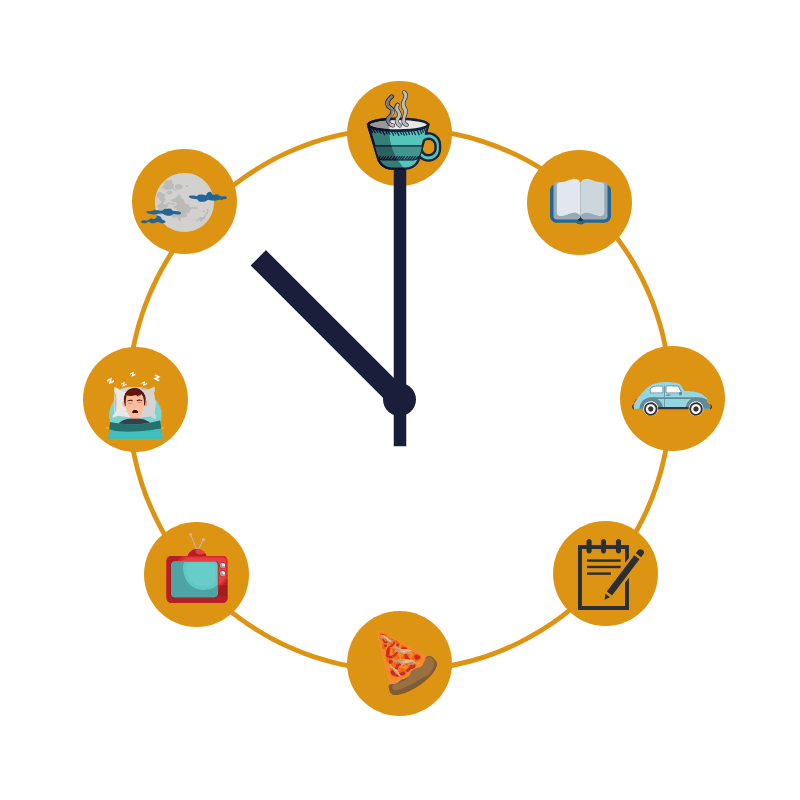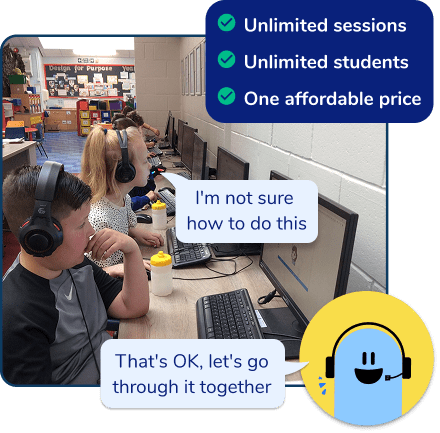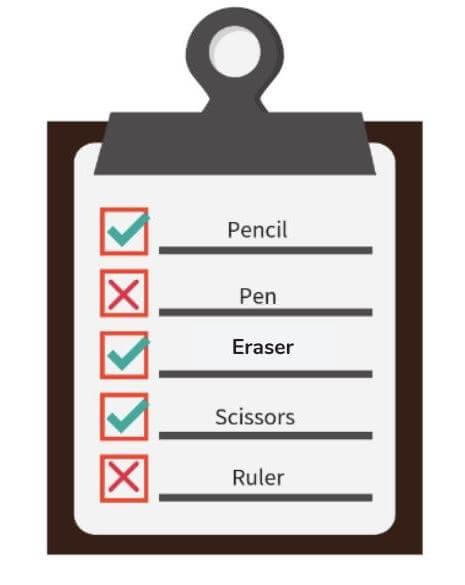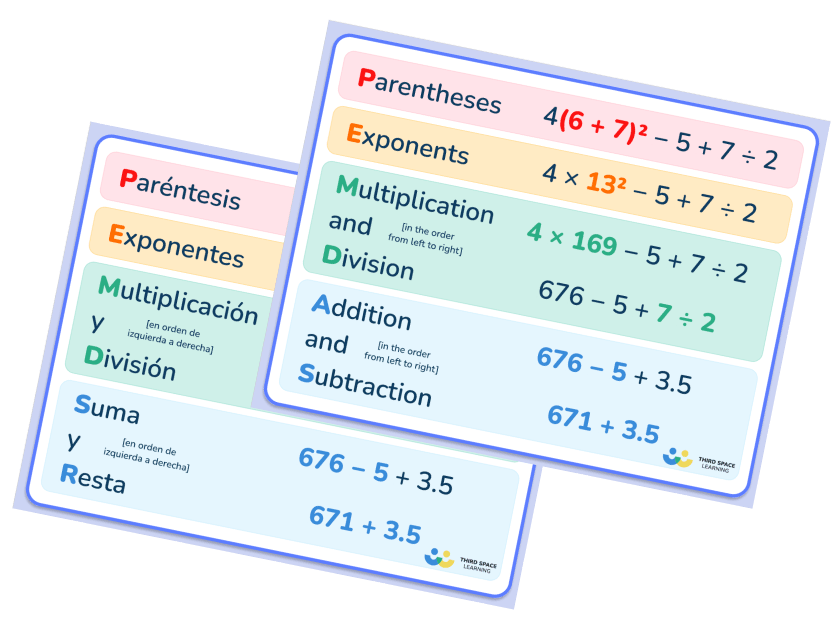The Best Homework Hacks: 18 Tips And Tricks To Help Busy Parents Get It Done Faster!
Homework, whether you are a parent or a child, is nobody’s favorite thing to do after a long day of school or work. That’s why we have collected 18 of the best homework hacks out there to help you get this tricky task finished much faster!
For many families, homework is a nightly battle that there’s no running away from, but you will be pleased to hear that it doesn’t have to be! Past studies have suggested that doing regular homework and home learning can help your child get better results in school, but we know just how hard it can be to get your child to sit and concentrate on their homework rather than the TV or their friends after school.
- Homework hack 1 – Understand your school’s expectations
- Homework hack 2 – Get into a homework routine and you won’t regret it
- Homework hack 3 – Create a planner to put your child in charge of deadlines
- Homework hack 4 – Make a space in your home for homework
- Homework hack 5 – Make sure everyone has a space to work in
- Homework hack 6 – Create a homework box
- Homework hack 7 – Get some help with your child’s math
- Homework hack 8 – Make homework time a ‘together time’
- Homework hack 9 – Make sure some healthy snacks are nearby
- Homework hack 10 – Turn off all of the distracting technology
- Homework hack 11 – Set a timer to help maximize effort
- Homework hack 12 – Use both praise and rewards
- Homework hack 13 – Take advantage of homework clubs
- Homework hack 14 – Let them do their homework …. A.K.A don’t do it for them!
- Homework hack 15 – Use (some) technology to help
- Homework hack 16 – Don’t make yourself out to be a super-scholar
- Homework hack 17 – Get the grandparents involved
- Homework hack 18 – Link homework to real life
Luckily though, we are here to help, and in this post, you will find 18 of the best homework hacks to help them get their homework done faster and leave you with more time to spend as a family doing the things you all want to do!
Fun Math Games and Activities Packs for Kindergarten to 5th Grade
Individual packs for Kindergarten to Grade 5 containing fun math games and activities.
Download Free Now!Homework hack 1 – Understand your school’s expectations
Have you ever found yourself wondering how much homework your child should be doing, or worrying that it’s too much or too little?
Well, with a quick check of your school’s website you can allay these fears. Most elementary schools will have their homework policy somewhere on their website which you can download and then check over, but if it’s easier you can always pop in to visit their teacher after school.
They will be delighted that you are showing an interest in your child’s schoolwork and will be able to talk you through what is expected with regard to homework.
Homework hack 2 – Get into a homework routine and you won’t regret it
Once you know how much homework is expected, and how long this should take, make sure you allocate a set amount of time before or after school each day to get the job done and stick to it.

Once your child is used to the daily routine, there’ll be far less nagging involved and the process will become a lot smoother! A daily routine means that everyone in your household will be on the same wavelength when it comes to homework, and this is an invaluable tool in a parent’s arsenal as it means arguments will be kept to a minimum.
If you use one of the homework hacks in this blog, we recommend making it this one!

Meet Skye, the voice-based AI tutor making math success possible for every student.
Built by teachers and math experts, Skye uses the same pedagogy, curriculum and lesson structure as our traditional tutoring.
But, with more flexibility and a low cost, schools can scale online math tutoring to support every student who needs it.
Find out more
Homework hack 3 – Create a planner to put your child in charge of deadlines
They may sound like a simple idea, but homework planners can be a great way to help your child become the boss of their own schedule.

In their planner, they should list which homework needs to be done each day and when they will do it, and they can design it to their own taste to help them get on board with the idea!
If you don’t have the time to help your child create their planner, there are also plenty of apps that have been designed to assist with homework scheduling so look online for inspiration and ideas.
Homework hack 4 – Make a space in your home for homework
A physical space for homework is a must.
Older children may prefer to study at a desk in their bedroom, while for younger kids the kitchen table or a quiet corner of the living room can be a great place to get homework done while you’re nearby.
Having an area that is free from distractions is the best way to ensure that focus is firmly on getting the work done quickly and to a high quality. No matter how small the distractions are, they can all add up and cause homework to take a lot longer than it should, and this is a simple hack that will help you avoid this from happening.
Homework hack 5 – Make sure everyone has a space to work in
If you’ve got more than one child, then, providing a dedicated space for each child to study in with their own homework materials close at hand, can help save time and arguments!
There will be no more “My brother stole my pen!” arguments if each child has their own space!
Homework hack 6 – Create a homework box
One way to prevent the inevitable call of “Mom/dad my pen isn’t working” is to create a dedicated homework ‘box’ for your child.

This can take the form of a special homework pencil case or caddy where they can keep all of their pencils, pens and other homework essentials, like glue sticks and scissors, nearby. By doing this simple thing, the days of having your child run around the house in search of a glue stick, and therefore extending the time homework takes, will be over!
Homework hack 7 – Get some help with your child’s math
The way that math is taught in schools has changed drastically since many parents were studying the topic, so if your child’s homework has left you scratching your head you will be pleased to hear that help is nearby.
Homework hack 8 – Make homework time a ‘together time’
Sitting with your child while they do homework can really help. This way they’re close to you and able to ask you questions. You can also keep an eye on the work that is being done while you’re getting on with other things.
Don’t try to leave the room when they’re in the lower grade levels. It won’t work and you’ll be frustrated at having to keep coming back in to help!
Homework hack 9 – Make sure some healthy snacks are nearby
As you will well know, a hungry child is a distracted child!
To help keep kids motivated on the task at hand, make sure they’ve got a few healthy and brain-boosting snacks nearby, as they won’t be in the mood to tackle homework if they’re hungry.
Things like nuts, chopped fruit or vegetables are a quick and easy way to stave off the post-school hunger pains until dinner time, so the focus can be firmly on homework! This is certainly a handy hunger homework hack!
Homework hack 10 – Turn off all of the distracting technology
When it’s time for homework, turn off the TV, iPads, phones and other electronics so that concentration is fully on work. One simple way to overcome the distractions that are ever-present in a family home is by blocking them out. Download a rain noise app or give your child some headphones and then all you will have left to worry about is making sure they hear the call for dinner!

If rain noise doesn’t work for your child, playing classical music has been proven to result in higher grades on tests than when other music genres are played, so why not consider starting a homework session with Beethoven and ending it with some Beyonce as a reward?
Homework hack 11 – Set a timer to help maximize effort
This is a simple technique that will help ensure your child is focused on the task at hand for the entire time they are doing it. By breaking homework sessions down into smaller, more manageable chunks of time, your child’s brain will have time to rest and not become overwhelmed by the task.
Grab a timer and set it for 10-25 minutes (depending on your child’s age). When the timer beeps, give them a 5-minute break before they start on their next high-intensity session. This break should involve doing something away from their homework area and be unrelated to the work they have just been doing. Ideas could include a walk around the block, grabbing a drink in the kitchen or even just talking about their day!
See the Pomodoro Technique for more ideas on how to stay focused on the task at hand.
Homework hack 12 – Use both praise and rewards
Try to make homework positive, rather than a chore. If you have a homework refuser, you could try linking homework to a reward chart, with weekly treats or pocket money once they get all their homework checked off the list.
Whatever activity your child is completing, be sure to praise the work they are doing so they know you value their effort. Even if they are struggling with a particular piece of homework, it is important that your encouragement does not falter as the best way to learn is by making mistakes!
Homework hack 13 – Take advantage of homework clubs
Many schools will run their own free after-school homework program, so check if and when these run and whether your child can attend. Children really benefit from attending homework clubs as they can work together and learn from each other.
Plus, you have the added bonus of all their homework being done by the time you pick them up which means you have more time to spend as a family when you get in. Being able to outsource this parenting job at least one day a week will make a big difference in the long-run.
Homework hack 14 – Let them do their homework …. A.K.A don’t do it for them!
As parents, we all want the best for our children but the only way they’ll learn is by doing it themselves. If you find yourself starting to do the homework yourself, take a step back and begin to explain how your child can work out the answer rather than just filling it in yourself.
This will benefit them by learning the technique needed to solve the problem, and it means that you don’t have to relive your elementary school math homework all over again! This is one homework hack that certainly benefits both parties!
Homework hack 15 – Use (some) technology to help
While one of the earlier posts recommended removing distracting technology from the equation when it is time for homework, on some occasions it can actually help get the job done faster.
Many schools now subscribe to online learning tools and provide parents with websites containing videos that give step-by-step explanations of homework tasks. Find out which platforms are used by your child’s school and make sure you have the log-in details so you can bookmark the links on your child’s tablet or computer for quick access.
Sometimes we all get stumped on long division or electrical circuits, so on these occasions, it is okay to bring in some technological help!
Homework hack 16 – Don’t make yourself out to be a super-scholar
Confide in your children about times when you struggled at school or failed to do the homework properly, and how you felt when you then got poor grades on a test or realized you hadn’t achieved what you were capable of.

If they can see that someone they look up to struggles occasionally too, this will show them that while things may not come easily to them, problems can be overcome with hard work. It should also help them realize the importance of homework and how much you appreciate their effort.
Homework hack 17 – Get the grandparents involved
If grandparents are helping when it comes to childcare and school pick-up, make sure they know what your child is currently learning at school – science, history and geography are great topics for grandparents to help with – and they may be willing to take them to museums, libraries or other places of interest to help them with their homework too.
We all know that grandparents’ house is the place to be for most children, so why not take advantage of this fact and get them to help ease the transition between school and homework.
Homework hack 18 – Link homework to real life
There are lots of ways you can make homework a part of life. For example, a trip to the supermarket can help with math and money skills, while road and shop signs are great for reading and spelling.

Talking about topics around the dinner table can also extend their learning and make them realize homework is teaching them skills for life. One of the most relatable ways to bring homework into real life, especially where math is concerned, is through food. Examples include:
If you’ve ordered a takeout pizza and have 6 friends coming over to eat it with you, how should you divide the pizza up?
A tub of Ben and Jerry’s Ice Cream contains 1 gallon of ice cream. How much will each member of your family get?
A bag of pasta contains 700 pieces. You have four friends over for dinner, so how many pieces should each person get?
The possibilities are endless here, so this is a good chance to get creative! Of course, you may not have the time every day to craft creative, fun math activities. That’s where our list of home learning resources comes in – find the perfect activity for your children to do when you don’t have the time to make it yourself!
If you have any other homework hacks you think we should add to our list, then make sure you let us know on our Facebook or Twitter pages. We are always on the lookout for tips and tricks from parents who are facing the homework battle on a daily basis, whether they think it is a good idea or not.
Do you have students who need extra support in math?
Skye—our AI math tutor built by experienced teachers—provides students with personalized one-on-one, spoken instruction that helps them master concepts, close skill gaps, and gain confidence.
Since 2013, we’ve delivered over 2 million hours of math lessons to more than 170,000 students, guiding them toward higher math achievement.
Discover how our AI math tutoring can boost student success, or see how our math programs can support your school’s goals:
– 3rd grade tutoring
– 4th grade tutoring
– 5th grade tutoring
– 6th grade tutoring
– 7th grade tutoring
– 8th grade tutoring
The content in this article was originally written by primary school teacher Sophie Bartlett and has since been revised and adapted for US schools by elementary math teacher Christi Kulesza







